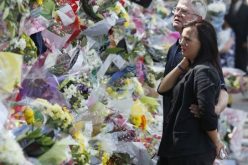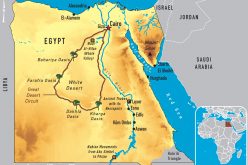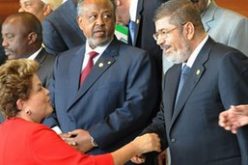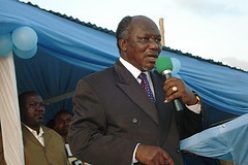 DALLAS, TEXAS — The first case of Ebola in the United States was diagnosed this week in Dallas, Texas, and the infected person is a man from Liberia who spent a few days with family members before being admitted to a hospital and put in isolation.
DALLAS, TEXAS — The first case of Ebola in the United States was diagnosed this week in Dallas, Texas, and the infected person is a man from Liberia who spent a few days with family members before being admitted to a hospital and put in isolation.
The fear that he may have infected others is especially strong in the area’s Liberian community, which is already struggling to help families devastated by the disease back in Africa.
News that a Liberian in Dallas had became the fist person in the U. S. to be diagnosed with Ebola pained local Liberians – like African food store owner Stephen Joe.
“A lot of people are kind of quiet because it is kind of embarrassing and because we don’t expect things to be going like this; it is kind of embarrassing to the Liberian community as a whole,” he said.
Joe says lack of good sanitation and health infrastructure has fostered the spread of Ebola back in Liberia. Now that it has arrived here, he advises great caution.
“Don’t try to shake people’s hands. That is the African way; you see people and you go and shake their hand. Try to avoid that,” he said.
Health officials say Ebola is transmitted only by people who display symptoms. But many people here fear the deadly virus after having lost family members to it in Liberia
Relieving their grief over such loss is a challenge for the Reverend Nathan Kortu, who ministers to a large Liberian congregation in Euless, near Fort Worth.
“Every Sunday when we come here people are crying because they just lost their family back home,” said Kortu.
The congregation has been collecting donations of money and medical supplies to help fight Ebola in Africa. But Kortu says now the threat is here.
“Honestly, every one of us are worried, including myself, but now we have to deal with this on two fronts, so that is making it very difficult for us,” he said.
There are 10,000 Liberians scattered across Dallas, Fort Worth and their many suburbs. But they are linked together by the Liberian Community Association of Dallas-Fort Worth, whose president, Stanley Gaye, worries Ebola could become a stigma for Africans.
“Not everybody from Liberia or West Africa or Africa will be infected, so I do not want people to have that stigma about Africans,” said Gaye.
The Liberian man being treated for Ebola in a Dallas hospital has been identified as Thomas Eric Duncan. Gaye says he does not know him, but he has been able to contact his wife by telephone.
“I was just giving her some moral support from the community, letting her know that we are praying for her and her family,” he said.
That is also the theme Rev. Kortu emphasizes for the whole community and their loved ones back in Liberia.
“Liberians, we are resilient people. We go through this. We have gone through war. This is just another situation that has come to our country. We trust in God that we will be able to have a victory over it,” he said.
Officials from the U.S. Centers for Disease Control and Prevention have conferred with members of the Liberian community here — to help educate family members back in Liberia on the best ways to avoid contracting the disease and spreading it to others.










